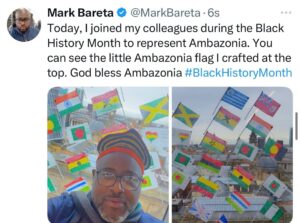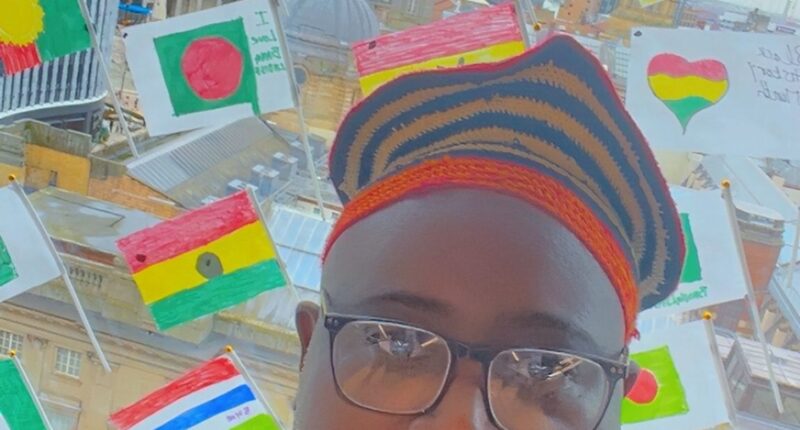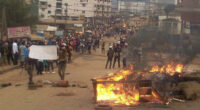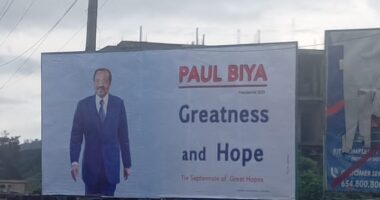When Ambazonian activist Mark Bareta took to social media to share his participation in Black History Month, he did not just post another photo for the timeline. In that single image, with the Ambazonian flag flying among the recognised flags of nations, Bareta made a statement that cuts deep into the soul of the Ambazonian liberation struggle: we exist, we matter, and our story continues.

In a world quick to silence uncomfortable truths, Bareta’s act of crafting and hoisting the Ambazonian flag at an international event was nothing short of defiance, a quiet but powerful rebellion against political invisibility. There, amidst the colours of recognised states, the blue-and-white stripes of Ambazonia spoke for millions whose voices have been suppressed, displaced, or silenced by violence. That small flag was not just paper; it was a symbol of endurance, a whisper of sovereignty, and a reminder that no regime can erase a people’s identity.
This moment, coming during Black History Month, carries a deeper resonance. Black History Month celebrates resilience, liberation, and the indomitable will of people who refused to be defined by their chains. The Ambazonian story is part of that continuum, a struggle born from colonial betrayal, nurtured in resistance, and sustained by the faith of its people. Just as African Americans fought for civil rights and South Africans for the end of apartheid, Southern Cameroonians today fight for the right to be free in their own homeland. Bareta’s gesture bridges that historic struggle, linking Ambazonia’s cause to the larger global narrative of Black liberation.
But Bareta’s act also raises uncomfortable questions for the international community. Why does the world preach freedom and human rights, yet remain silent as Ambazonian villages burn and civilians are massacred? Why is self-determination celebrated in one part of the globe and criminalised in another? The small Ambazonian flag fluttering among the banners of recognised states is a visual indictment of this global hypocrisy. It declares that recognition is not a favour granted by the powerful, it is a right earned by a people’s conviction and sacrifice.
Through this single symbolic act, Mark Bareta reminded the diaspora and the world that nationhood begins in the heart long before it appears on any map. Ambazonia may not yet have a seat at the United Nations, but it has found a permanent place in the conscience of its sons and daughters, from Buea to Birmingham, from Bamenda to Berlin. And as long as one Ambazonian dares to raise the flag, whether on the battlefield, in exile, or at a cultural event, the spirit of Ambazonia remains unbroken.
Indeed, that small paper flag represents something far greater than geography — it embodies a dream deferred but not denied. It carries the hope of a people who refuse to vanish. It tells the world that no matter how long the night, the dawn of Ambazonia will come.
God bless Ambazonia.
God bless her sons and daughters who never stop believing.
By Lucas Muma




